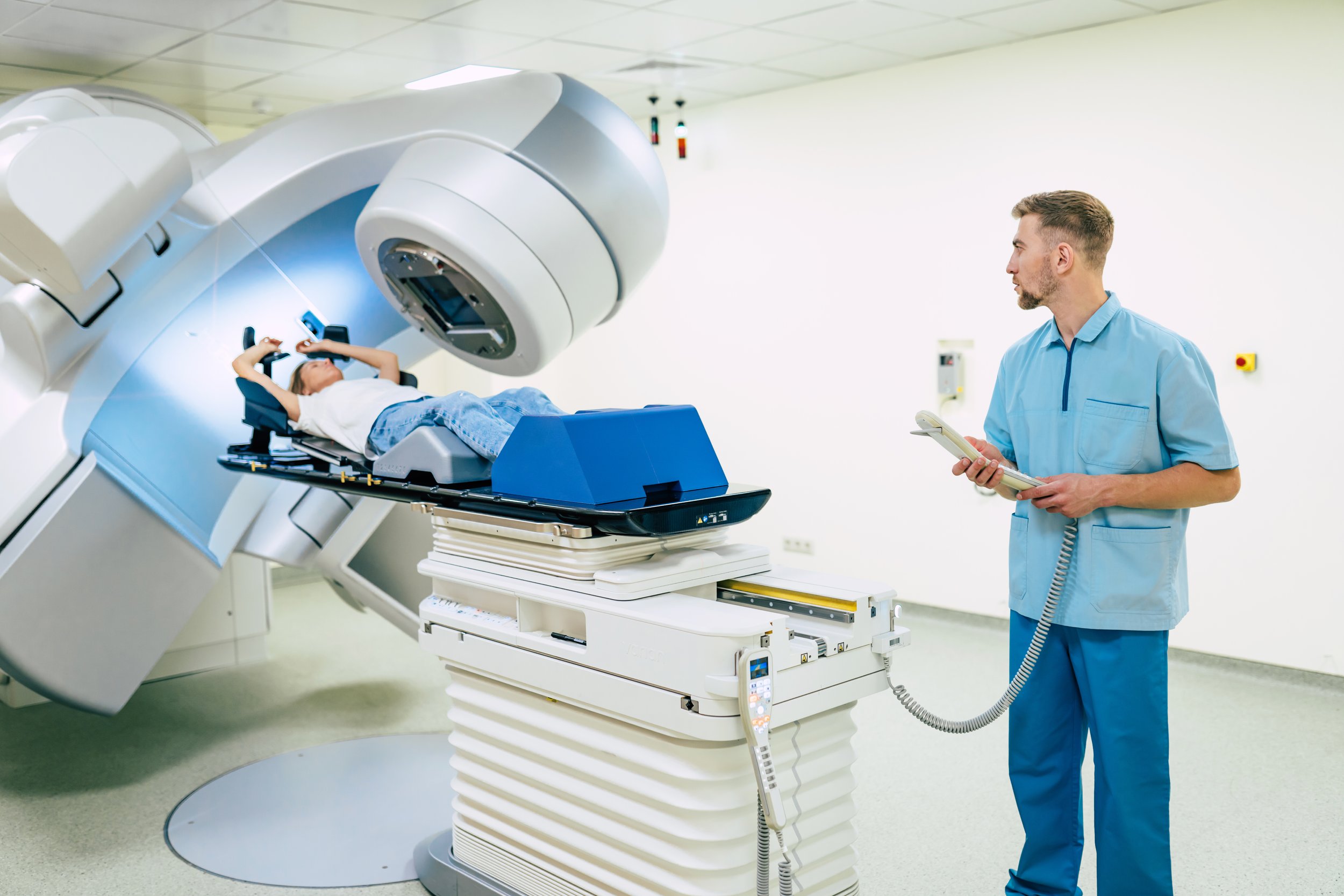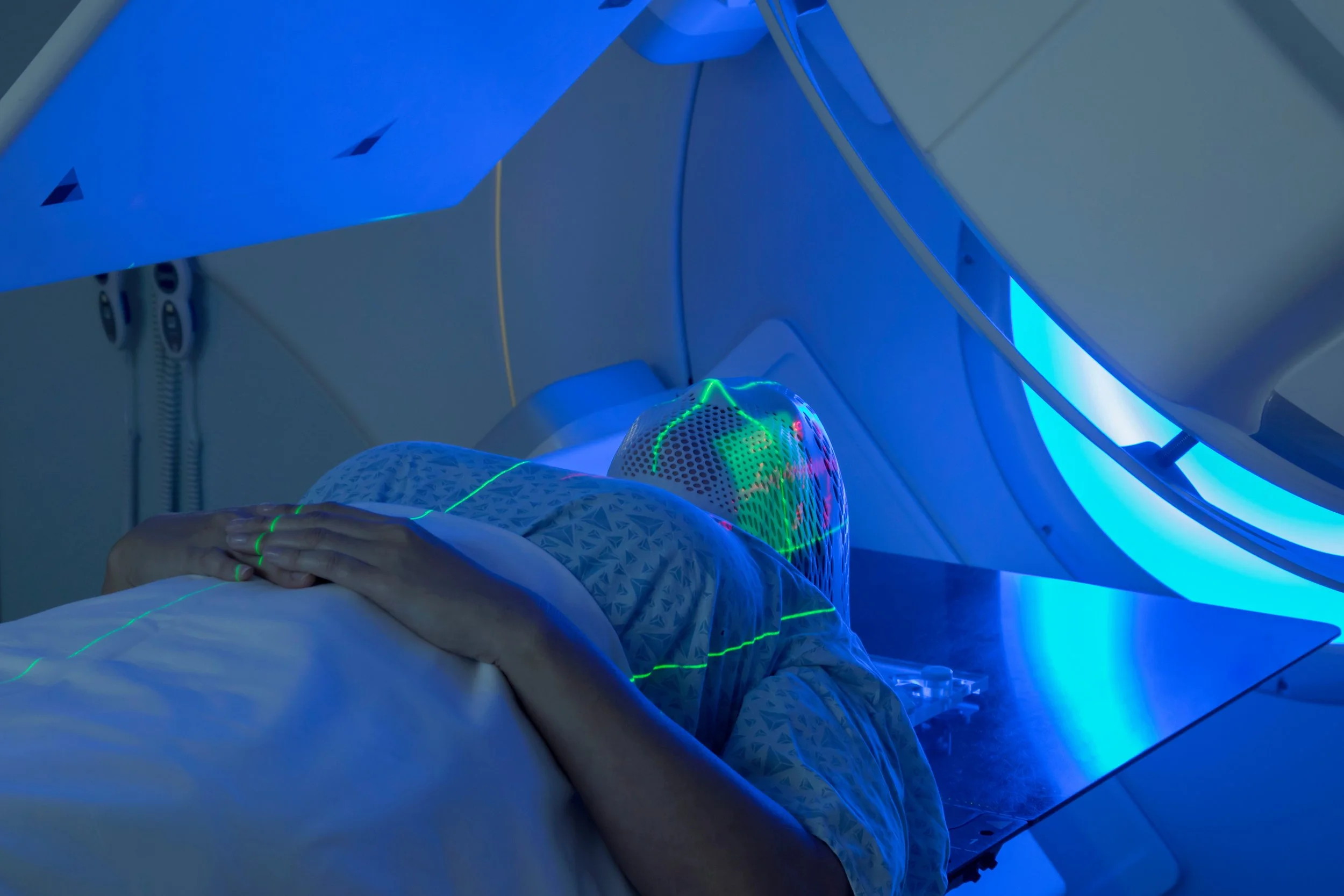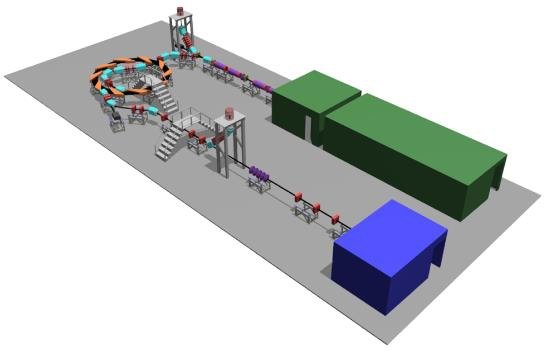
LhARA will revolutionise cancer care
LhARA
is innovative technology.
is poised to revolutionise the treatment of the most challenging cancers.
is offering hope for the future of cancer care.
is being developed to serve the Ion Therapy Research Facility.
Treating Cancer: From Photons to Particles
-
Current Treatment
High-energy X-rays are used most frequently in the delivery of radiotherapy.

-
Particle Treatment
Particle-beam radiotherapy (proton and ion beams) is a precise way to kill cancerous cells while sparing healthy tissues.

-
The Problem
Make particle-beam radiotherapy accessible to the many by reducing the size and cost of the clinical systems of tomorrow

-
The Solution
LhARA will be a hybrid system in which a laser will produce protons and ions, bringing about the next generation of cancer care.

How does it work?
Produce Protons or Ions
1. A high-power, fast-pulsed laser will drive the creation of a large flux of protons or ions.
Create a beam
2. Electron-plasma lenses capture those protons or ions into a concentrated beam.
Guide the particles
3. Rapid acceleration will be performed, using a Fixed Field Alternating Gradient accelerator.
This approach will enable the study of how cells and tissue respond to highly ionizing radiation with a wide variety of time structures, energy and spatial configurations. It will examine instantaneous dose rates that reach and significantly exceed the ultra-high dose-rate “FLASH” regime.
This novel machine could make it easier to deliver the dose in very short high-intensity pulses, and as a group of micro-beams. Recent research has shown that this improves the effectiveness in killing cancer cells, while sparing healthy tissue.
The Future of Cancer
-

The World Health Organization projects over 35 million new cancer cases predicted in 2050.
-

Radiotherapy is used in 50% of cancer patients and results in 40% of cancer cures, second only to surgery.
-

The fight against cancer calls for planning and innovative treatments to begin now. LhARA is part of this groundbreaking technology that will revolutionise cancer treatment for the future.

“Together, the collaboration is making beams faster and more energetic, whilst reducing the distances they have to travel before entering patients' bodies. This will drive down the cost of facilities, allowing more patients access to these state of the art treatments. Not only that, but it will feed back into the physical sciences by helping to discover more properties of particle beams.”
Explore
This link takes you to the LhARA collaboration website which contains technical articles, and meeting summaries. It has not been optimised for non-members but is available for all to review.
Stakeholders
LhARA has established international collaborations with partners from academia, oncology, the NHS, industry, and patient representatives.
Get Involved
We invite you to register your contact information to learn more about the project, or click the button below to email us directly.




